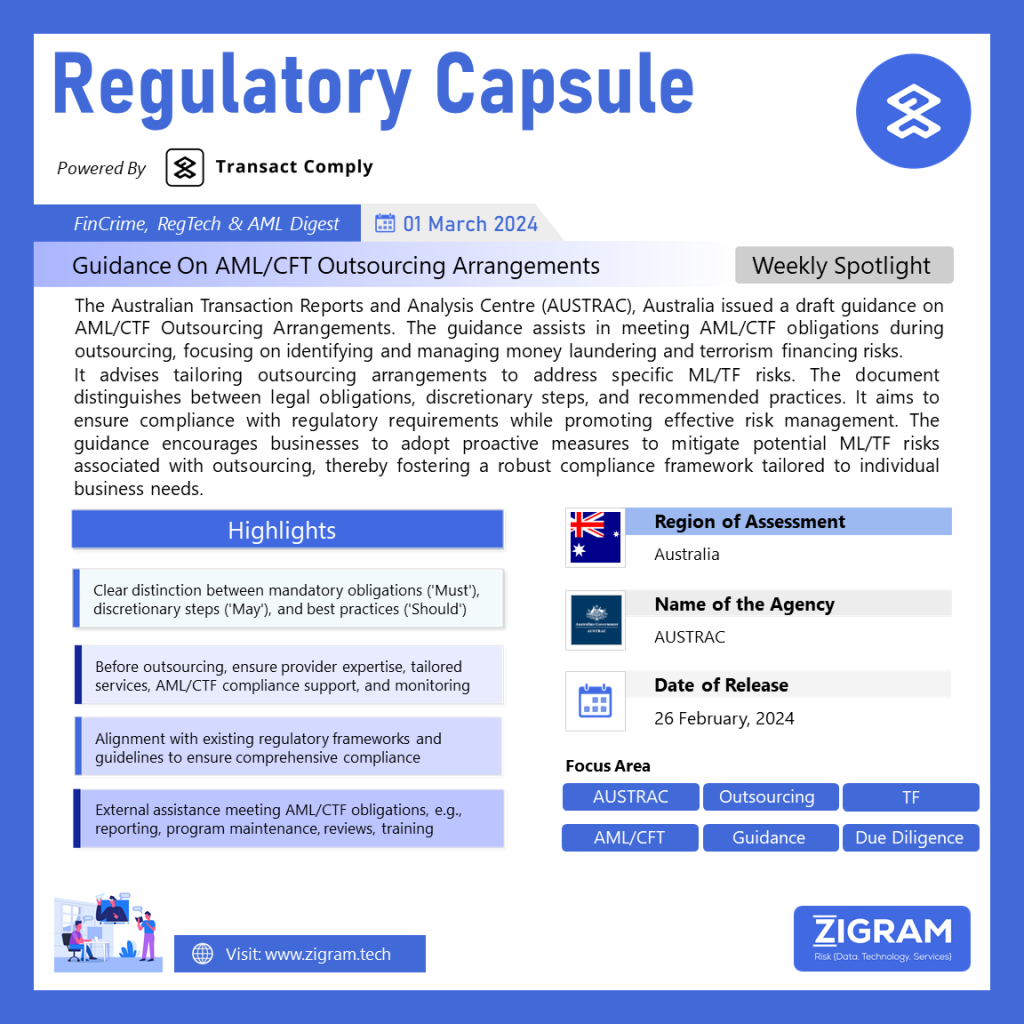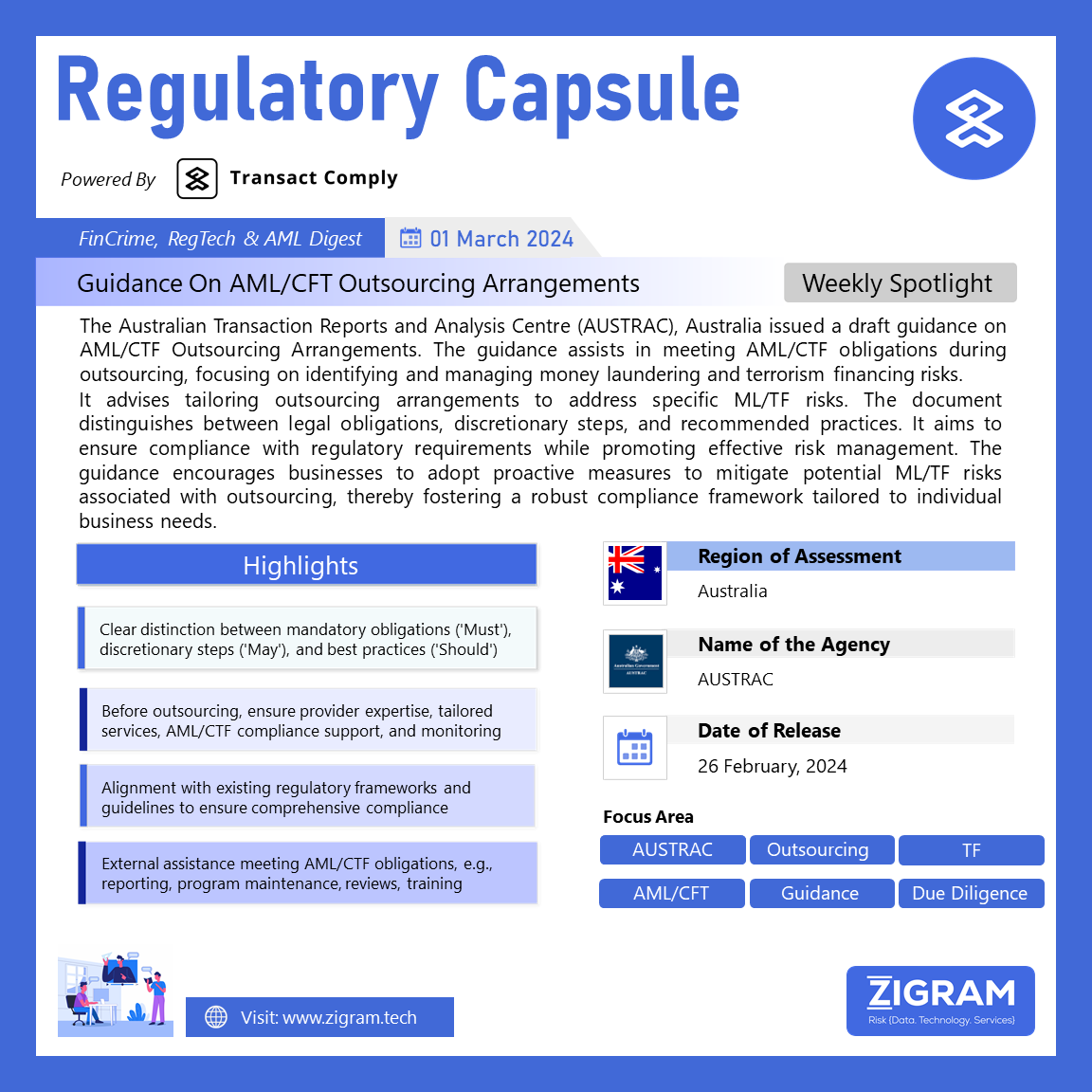Published Date:
Regulation Name: AUSTRAC Guidance on AML/CFT Outsourcing Arrangements
Regulatory Update Date: 26 February 2024
Country: Australia
Agency: Australian Transaction Reports and Analysis Centre (AUSTRAC)
The draft guidance provided by AUSTRAC offers comprehensive insights into managing Anti-Money Laundering and Counter-Terrorism Financing (AML/CTF) obligations within outsourcing arrangements. At its core, the document emphasizes the need for businesses to remain compliant with AML/CTF regulations while engaging in outsourcing activities. It provides practical strategies to identify, assess, and mitigate the risks of money laundering and terrorism financing (ML/TF) that may arise from such arrangements.
One of the central themes of the guidance is the importance of tailoring outsourcing arrangements to address specific ML/TF risks inherent to the business. It highlights the necessity for businesses to conduct thorough risk assessments when engaging third-party service providers. By understanding the nature of their operations and the potential vulnerabilities within their outsourcing relationships, businesses can implement targeted measures to mitigate ML/TF risks effectively.
Furthermore, the guidance outlines the distinction between legal obligations, discretionary steps, and recommended practices. This differentiation is crucial for businesses to navigate the regulatory landscape effectively. It helps them understand their mandatory compliance requirements (‘Must’), optional actions to enhance compliance (‘May’), and best practices to achieve optimal risk management (‘Should’).
Practical implementation is another key focus of the guidance. It offers insights into the steps businesses can take to ensure compliance and effective risk management in outsourcing scenarios. This includes establishing clear contractual arrangements with service providers, conducting due diligence on potential partners, and implementing robust monitoring and reporting mechanisms.
Importantly, the guidance aligns with existing regulatory frameworks and guidelines, providing businesses with a comprehensive roadmap to navigate AML/CTF compliance requirements. By following the principles outlined in the document, businesses can ensure consistency with regulatory expectations and avoid potential penalties for non-compliance.
The guidance also emphasizes the proactive measures businesses can take to address ML/TF risks in outsourcing. By fostering a culture of compliance and risk awareness, organizations can enhance their resilience to financial crime threats. This involves promoting accountability at all levels of the organization, from senior management to frontline staff, and integrating AML/CTF considerations into decision-making processes.
Overall, the draft guidance serves as a valuable resource for businesses operating in regulated sectors, such as financial services, gambling, and remittance services. It provides practical guidance on navigating the complexities of outsourcing while maintaining compliance with AML/CTF obligations. By following the principles outlined in the document, businesses can strengthen their risk management frameworks, enhance regulatory compliance, and safeguard against the threats of money laundering and terrorism financing.
- #Outsourcing
- #AML
- #CTF
- #RiskManagement
- #Compliance
- #Expertise
- #TailoredServices
- #AMLRegime
- #IndustryKnowledge
- #PerformanceMonitoring
- #IndependentReview

